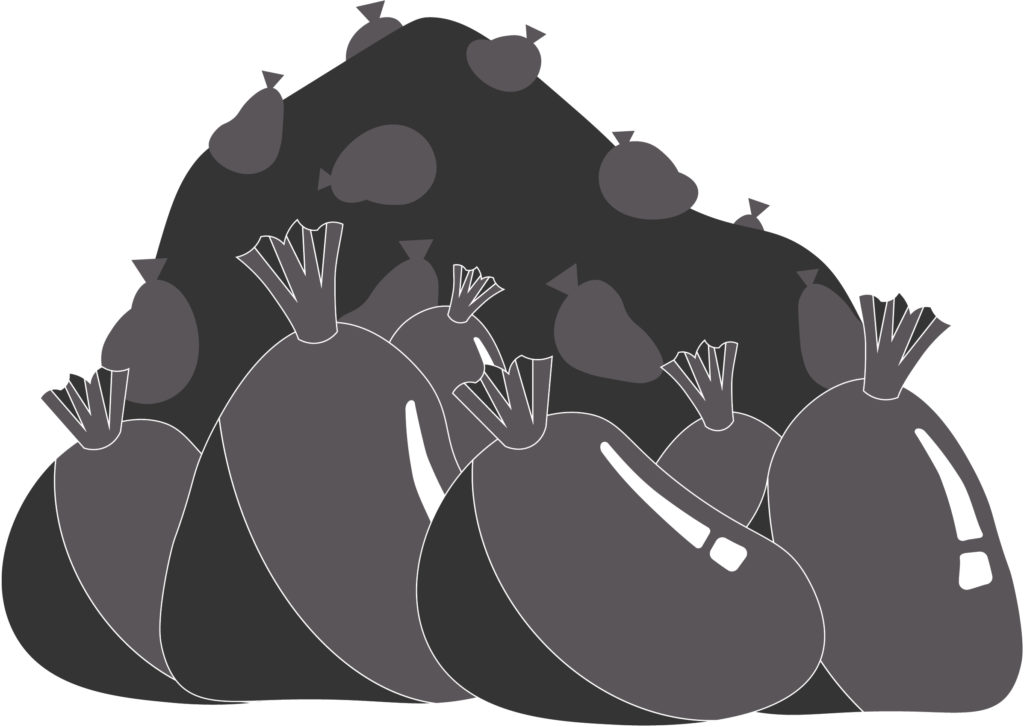How much trash does Seattle University send to landfills on a daily basis? Garbology II: Return to Trash Mountain, hosted by Facilities Recycling Shop and the Green Team on Oct. 4 in the Lemieux Library Plaza, aimed to show just how much waste the Seattle U community creates and how much of it actually belonged in the recycling or compost.
Eric Elliott, Seattle University’s Recycling Coordinator, described Garbology as a public waste-sorting event hosted to raise awareness of waste management practices on campus. It also collected information used in an annual inspection of the university’s waste.
17 volunteers, made up of students, staff and faculty, met at the plaza and sorted through about 456 pounds of waste from the day prior, and Elliott declared Garbology IIan overwhelming success.
How much trash does Seattle University create in a day? On average, 1.6 tons of waste goes from campus trashcans to the landfill every day. The event not only exposed how much trash the school generates, but also found that 62 percent of the waste collected was compostable, 21 percent was recyclable and only 17 percent of the total waste was neither and sent to a landfill.
According to their findings, 83 percent of the 1.6 tons of garbage sent to the landfill every day does not belong there. This proportion of compostable and recyclable waste found in trash cans was larger than that of last year’s Garbology event, which found that 76 percent of trashcan waste was misplaced.
Elliott said that the majority of the trashcan waste that could be composted were to-go containers from campus dining, as well as paper towels, tissues and napkins. Solutions to this problem could include the addition of compost bins to the 43 public bathrooms on campus and creating more awareness about compostable plastic cups.
Emily Mozzone works for the Facilities Recycling Shop and said that the mistakes weren’t only isolated to those to-go containers.
“[We] even found completely edible and sealed food in the trash, such as unopened sodas and protein bars,” Mozzone said.
The first annual Garbology event in February kicked off Seattle U’s participation in RecycleMania, “a friendly competition for college and university recycling programs to promote waste reduction activities to their campus communities.”
The 2017 competition ended with Loyola Marymount in first place with a recycling rate of 83.9 percent, and with Seattle University in twelfth place with 67.5 percent out of the 190 participating universities. The total 2017 competition boasts 69.9 million pounds of recyclable and food organics collected.
The Sustainability Tracking, Assessment & Rating System (STARS) is a self-reporting framework for 857 college institutions worldwide that measures sustainability. Through participating in STARS, universities can earn points towards a rating between Bronze and Platinum.
Seattle U currently rates as a Gold institution, with an overall score of 69.41: the percentage of possible points Seattle U could have earned over four main categories. In just the waste diversion category, it scores a 1.95 out of a possible 3 points, meaning the school diverts 65 percent of its waste from the landfill, putting Seattle U .02 points behind University of Washington.
Seattle U students are already putting in the work to promote landfill waste reduction, as well as other sustainability goals.
Jessie Dirks, leader of the Green Team, a student organization who helped put on Garbology II said their goals mostly include awareness work.
“[They want to work towards] reaching a large portion of the undergraduate student body, increasing awareness about how to responsibly compost and recycle, streamlining the waste selection process to make it more user friendly…[and] reducing landfill waste generated on campus and at community member’s homes,” Dirks said.
Green Team is seeking volunteers to help people sort their waste responsibly at university and athletic events. Past events include volleyball games, soccer games, orientation, Welcome Week and preview days. They are holding an informational session on Tuesday, Oct. 17.
The university has been taking steps to increase waste diversion, including events like Garbology that promote awareness, and recently, signs posted in campus eateries to alert students that Bon Appetit’s cutlery is compostable. It took over 45 total volunteer hours to sort only one day’s worth of waste. According to Eric Elliott it would take over 315 hours every day to sort all of Seattle U’s landfill waste.
“It would only take two-and-a-half minutes every day for each of our over7,000 campus community members to reach the same result,” Elliott said. “As a university, we have set an ambitious goal is to divert at least 80 percent of our waste away from landfills by 2020, and [the city of] Seattle’s goal is to divert 70 percent by 2022. If everyone spent the extra two-and-a-half minutes to sort their waste…we could reach that goal in 2018.”
Editor’s note: Emily Mozzone is a staff designer at the Spectator.
Quinn may be reached at
qferrar@su-spectator.com









